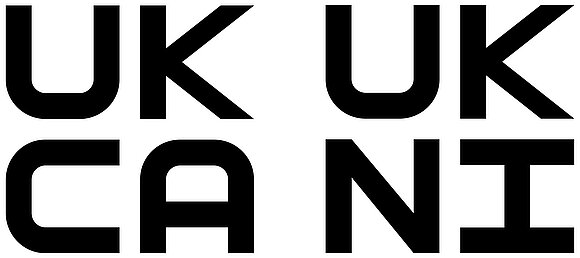Reading time: 1 minute
At the last minute, Brussels and London put a 1,200-page trade and cooperation agreement [6] under the Christmas tree. This brings new formalities and documents to manufacturers, distributors and installation companies in our industry.
Companies with a business relationship with the UK now have to deal with many detailed issues. We want to answer some questions based on a first analysis of the agreement and official sources. The ongoing practical interpretation of the treaty will certainly keep us busy for the next few months, and we will provide further information. But the good news beforehand: Due to the close cooperation with our partner UL, ift clients can be sure that compatible ift test evidences are also recognized in Great Britain and that UL test evidences from the UK can be used for CE marking.
The agreement makes it possible to avoid customs duties for most products in trade, but additional formalities, i.e. accompanying documents, are required. There are obviously still considerable problems with these at present, and major logistics service providers such as DPD (UK) and DB Schenker are (temporarily) stopping accepting shipments as too many shipments with incomplete accompanying documents are blocking entire freight loads.
The British government provides daily updates on the procedures on its website gov.uk. A distinction is made between goods coming to [1] or from [2] the UK. However, special rules apply to the goods traffic between the EU and Northern Ireland. There are no special regulations or requirements to be observed for construction products, such as for certain chemicals, medicines or food.


Great Britain (GB) and Northern Ireland (NI)
(Source: gov.uk)
The UK has adopted the well-known EU Construction Products Regulation with amendments for the UK. This means that construction products complying with the "UK designated standards" (these currently correspond to the EU harmonized product standards, such as those listed on the DIBt website) are also subject to labelling requirement in the UK. For products according to non-harmonized standards, such as internal doors, nothing changes compared to the situation in 2020.
The following regulations apply to construction products according to EU/UK harmonized standards:
- Goods that were in free circulation in the UK before 1 January 2021 remain unaffected by the new regulations. This means that their CE marking will continue to be accepted in GB.
- For most construction products subject to CE marking, a transition period until 31 December 2021 applies. Up to this point, UK still accepts CE marking. From 1 January 2022, products must bear the new UKCA marking.
- In Northern Ireland, construction products from Europe can still be marked and traded with the CE mark.
The UKCA mark (UK Conformity Assessed) will become mandatory for all construction products covered by the UK designated standards from 1 January 2022. The requirements for the UKCA mark correspond to the EU conformity procedures known for the CE mark (obligation or indication of the manufacturer, involvement of third parties if necessary). However, only test reports or certificates of conformity from UK notified bodies are permitted as the basis for the UKCA mark. In 2021, the UKCA mark may still be affixed in parallel with existing CE marks.
However, the EU does not recognize the UKCA mark. For construction products from the UK, only test certificates or certificates of conformity from EU notified bodies (which cannot be based in the UK!) have been required since 1 January 2021 - as for all construction products from non-EU countries.
Correct customs declaration and designation of origin
When adapting the EU Construction Products Regulation, the UK deleted the product information office regulated in Article 10, i.e. no office is designated for the UK that is supposed to inform inquiring companies from abroad about the requirements imposed on the respective product by construction law in the UK. The basis for the preferential customs regime compared to other third countries (i.e. non-EU or EFTA countries) is a declaration of origin. This explains the "economic origin", i.e. where the entire or predominant added value of the product took place. For example, a jam produced in England from Spanish oranges may be considered an "English product" because most of the value added took place in the UK.
However, an automatic door assembled in the UK with European, Asian and US components can also be considered an "English product" if the majority of the value added took place in the UK. Merely repackaging, cutting to length or portioning is not enough to achieve the majority of the value added. This is intended, for example, to prevent preferential imports of textiles manufactured in China via English mail-order companies or shopping portals.
There is a six-month period until 30 June 2021 for retailers to submit certificates of origin, customs certificates and the required information. Thus, it is not necessary to present the declaration of origin immediately upon import from the EU in order to claim duty-free treatment in the UK. There is a transition period for distributors to submit such supplier declarations of origin until 31 December 2021. However, this only means an extension of the deadline, not a waiver! Depending on the value of the goods, it may make sense to save the effort of providing proof and instead pay the customs duties as for a third country product. [5]
Assembly work and services in the UK
Companies based in the EU that send employees to the UK, e.g. to carry out assembly or repair work there, may have to provide the company vehicles with the so-called "green insurance card". A visa requirement only arises if the assignment is to last longer than 6 months.
During the current COVID-19 pandemic, the “Online passenger locator form” [3] must be filled-in (within 48 hours) before entering the UK and then printed as confirmation, as well as a negative COVID-19 test, which must not be older than 72 hours and which is only accepted in English, French or Spanish. Violations of these two regulations are considered a criminal offense. UK hotel stays are currently allowed for non-tourist travel. Special, rapidly changing regulations apply to the return trip to the European mainland in view of the classification of England as a high-risk area; France, for example, requires COVID-19 test certificates in French! However, England has also imposed a hard lockdown, the details of which should be kept up to date. [4]
The import and export of required tools for such assemblies is possible duty-free, but an "ATA Carnet" in English must be applied for. If entry is via Dover or the Eurotunnel, customs formalities must be completed on the English side at one of the (UK) domestic customs offices set up to relieve the port city.
A "Kent Access Permit (KAP)" is required when using trucks over 7.5 tons and leaving the UK via the Port of Dover or the Eurotunnel. This is to ensure that all required paperwork is in place to exit the country and that the vehicle is not contributing to congestion in the county of Kent. The KAP is also required for outbound, unloaded trucks. It is only valid for 24 hours, if the KAP is missing £300 will be charged and the truck will be refused to leave the country! The driver and passengers need a COVID-19 test not older than 72 hours (upon arrival in France). For drivers, such tests are offered free of charge in England, as emergency medical care is free of charge in the UK upon presentation of the insurance card for compulsorily insured persons from EU countries. However, given the known problems and waiting times of the English national health system ("NHS"), additional health insurance abroad is recommended in case of illness.
Conclusion
By tolerating CE marking as proof of conformity of construction products in the UK, the grace period for EU exports is effectively extended until 31 December 2021. Nevertheless, there are a number of practical barriers that should be considered – not least for travel and services provided by European companies in the UK. However, ift Rosenheim has already reached bilateral agreements with its long-term cooperation partner UL, enabling mutual recognition of test certificates, certifications and monitoring evidence. Provided that the normative requirements are met, English manufacturers will thus receive the necessary evidence for a CE mark and European producers will receive the documents for the UKCA or UKNI mark.



